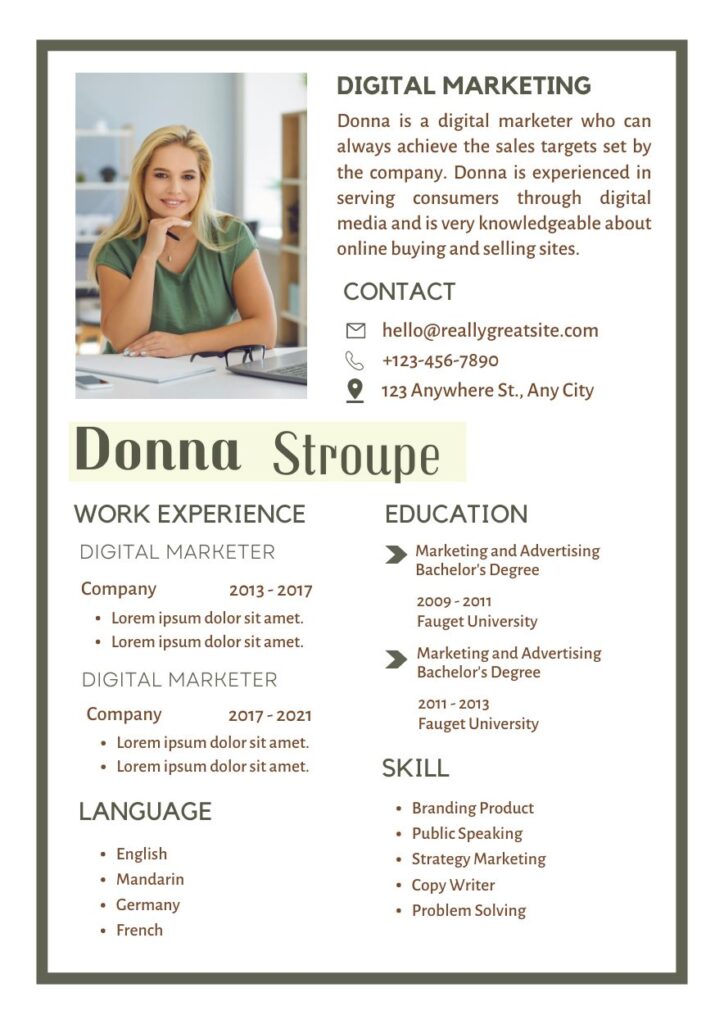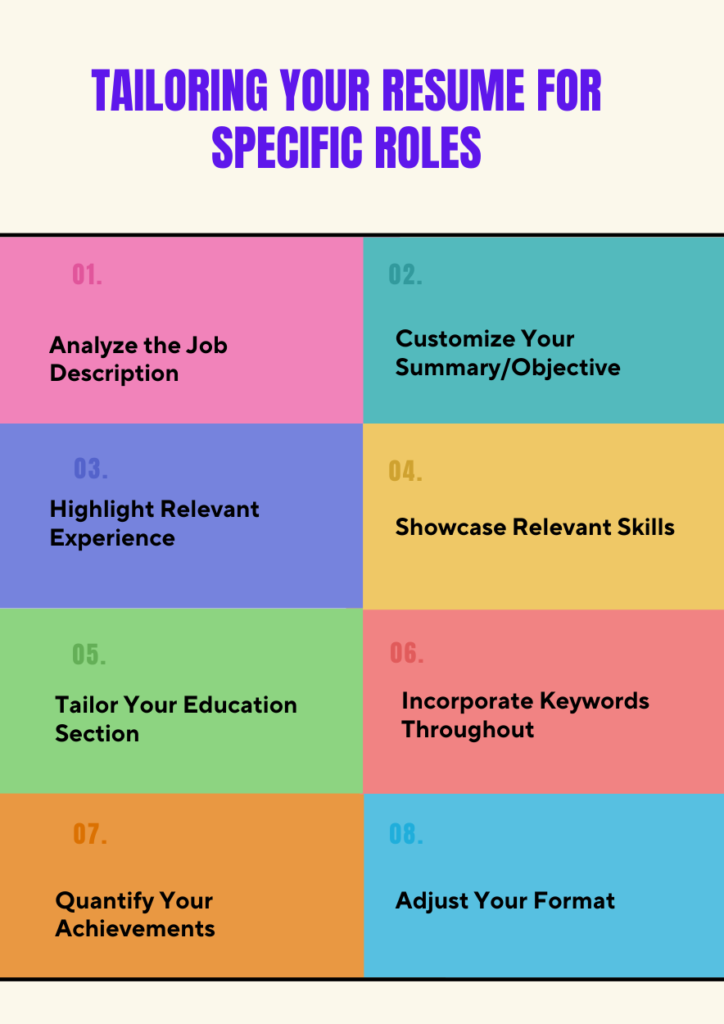Creating a resume as a fresher is an important step in launching your professional journey and making a strong first impression on potential employers. Your resume acts as a gateway to potential employers, showcasing your skills, experiences, and qualifications. Your resume serves as a gateway to potential employers, showcasing your skills, experiences, and qualifications. In this blog, our comprehensive guide will walk you through the process of making a professional resume for freshers that not only stands out but also aligns with the best practices of resume writing.
Understanding the Basics of a Resume
What is a Resume?

A resume is a concise summary of your educational background, work experience (if any), skills, and achievements. Its primary purpose is to demonstrate why you are the best fit for a particular job role, making it a critical tool in your job search arsenal.
Importance of a Resume for Freshers
For freshers who have limited professional experience, a well-crafted resume becomes even more vital. It serves as your first impression on potential employers, highlighting your academic accomplishments, skills, and potential contributions to their organization.
Choosing the Correct Resume Format

Different Resume Formats:
When creating your resume, choosing the right format is key to effectively presenting your information:
Chronological Resume:
This format is ideal if you have relevant work experience to showcase. Organize your work experience in reverse order, starting with the most recent job.
Functional Resume:
Focuses on your skills and abilities rather than your chronological work history. It’s suitable if you’re transitioning careers or have gaps in employment.
Combination Resume:
Combines both elements of chronological and functional formats, highlighting both your skills and work history. This format is often preferred by freshers as it allows them to showcase relevant skills and educational backgrounds prominently.
If you’re a recent graduate with internship experiences related to your field of study, a combination resume would allow you to highlight both your academic achievements and practical skills gained through internships.
Structuring Your Resume: Essential Sections
Key Sections of a Resume
To create a well-rounded resume, include the following essential sections:
Contact Information:
Provide your complete contact information, starting with your full name, phone number, email address, and optionally, your LinkedIn profile or personal website.
Resume Objective or Summary Statement:
A brief introduction that summarizes your career goals, skills, and what you bring to the table as a fresher.
Educational Background:
Detail your academic achievements, including your degree(s), institution name, GPA (if impressive), and relevant coursework or projects.
Skills:
Highlight both technical skills (e.g., programming languages, software proficiency) and soft skills (e.g., communication, teamwork) that are relevant to the job you’re applying for.
Projects and Internships:
Describe any significant projects or internships you’ve completed, emphasizing your role, contributions, and outcomes achieved.
Extracurricular Activities:
Include activities outside of academics that demonstrate leadership, teamwork, or other relevant skills.
Writing Your Resume: Tips and Guidelines
Crafting an Effective Resume
When writing each section of your resume, consider the following tips and guidelines:
Objective or Summary Statement:
Tailor this section to each job application, highlighting how your skills and experiences align with the company’s needs.
Educational Qualifications:
Provide specific details about your academic achievements and any relevant coursework or honors.
Skills:
Use bullet points to list your skills concisely, ensuring they match the job description’s requirements.
Projects and Internships:
Describe your roles and contributions using action verbs (e.g., developed, managed) to demonstrate your impact and what you learned.
Extracurricular Activities:
Highlight specific achievements or responsibilities that showcase your strengths and qualities beyond academics.
Tailoring Your Resume for Specific Roles

Analyze the Job Description
Identify Keywords: Highlight the skills, experiences, and qualifications mentioned in the job posting.
Understand the Role: Get a clear idea of what the role entails and what the employer is looking for.
Customize Your Summary/Objective
Targeted Statement: Write a summary or objective that directly addresses the specific role and company.
Include Keywords: Incorporate relevant keywords from the job description.
Highlight Relevant Experience
Prioritize Relevant Jobs: List your most relevant job experiences first.
Detail Achievements: Focus on accomplishments and responsibilities that align with the job you’re applying for.
Showcase Relevant Skills
Match Skills to Job Requirements: List skills that are specifically mentioned in the job description.
Use Specific Terminology: Use the same terms and phrases as the job description to pass through Applicant Tracking Systems (ATS).
Tailor Your Education Section
Relevant Courses and Projects: Highlight coursework, projects, or certifications that are pertinent to the job.
Mention Honors and Awards: Include any relevant academic achievements.
Incorporate Keywords Throughout
Optimize for ATS: Make sure to naturally include keywords from the job posting throughout your resume.
Use Action Verbs: Start bullet points with action verbs to clearly demonstrate your contributions.
Quantify Your Achievements
Use Numbers and Metrics: Provide concrete examples of your achievements using numbers, percentages, or other metrics.
Highlight Impact: Show how your contributions positively impacted your previous employers.
Adjust Your Format
Choose the Right Format: Depending on the role, you might opt for a chronological, functional, or hybrid resume format.
Professional Appearance: Ensure your resume is clean, professional, and easy to read.
Things Not to Put on Your Resume
Spelling Mistakes:
Attention to detail is crucial in a resume. Spelling mistakes or typos can create a negative impression and suggest a lack of professionalism. Always proofread your resume carefully, and consider using spelling and grammar check tools.
Overly Detailed Hobbies and Interests:
While some hobbies and interests can showcase valuable skills or traits (like teamwork or leadership), too many details or unrelated hobbies can distract from your professional qualifications. Keep this section brief and relevant to the job you’re applying for.
A solid wall of text:
Your resume should be well-structured with clear sections and bullet points. Avoid dense paragraphs without breaks, as they can be overwhelming and difficult to read. Use bullet points to showcase your achievements and job responsibilities.
Excessive Information:
Resumes should be concise and focused on relevant skills and experiences. Including excessive details or irrelevant information can make it harder for recruiters to quickly grasp your qualifications.
Unnecessary Personal Information:
Your resume should focus on professional qualifications and achievements relevant to the job. Avoid including personal details such as marital status, religion, or political affiliations, unless they are directly relevant to the position you’re applying for.
Conclusion
Creating an impactful resume as a fresher is a critical step toward securing your dream job. By following these step-by-step guidelines and tailoring your resume to each application, you’ll enhance your chances of standing out to potential employers.
Ready to ace your next interview? Check out PrepMagic, where we help people crack interviews for their dream jobs. Start your journey toward career success today.
